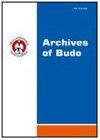Traditional Asian martial arts and youth: Experiences of young Chinese wushu athletes
IF 1.5
3区 医学
Q3 SPORT SCIENCES
引用次数: 10
Abstract
Background Traditional Asian martial arts have often been associated with positive outcomes in youth. But despite the absence of empirical evidence, especially countries with a long tradition in martial arts (such as China and Japan) have reemphasised these proclaimed positive effects. A study was set up to investigate the way how contemporary Chinese youth experience distinct aspects of wushu, the collective noun for the Chinese martial arts. Material/Methods: Data were collected among 150 youngsters (7–16 years) regarding, among other things, their views on wushu, the training sessions and their teacher. Results: Data revealed that youth’s experiences and views are not in line with the characteristics of wushu and its traditional teaching practice as described in the literature. Conclusions: In the present paper it is concluded that these youngsters seem to experience wushu as a modern sport, in which the focus is on learning technical skills rather than on ethical and spiritual cultivation.亚洲传统武术与青年:中国青年武术运动员的经验
传统的亚洲武术通常与青少年的积极成果有关。但是,尽管缺乏经验证据,特别是具有悠久武术传统的国家(如中国和日本)已经重新强调了这些宣称的积极作用。一项研究旨在调查当代中国青年如何体验武术的不同方面,武术是中国武术的统称。资料/方法:收集了150名7-16岁青少年对武术、训练课程和武术老师的看法等方面的数据。结果:数据显示,青少年的经历和观点与文献中描述的武术特点和传统教学实践并不相符。结论:这些青少年似乎将武术作为一项现代运动来体验,其重点是技术技能的学习而不是道德和精神的培养。
本文章由计算机程序翻译,如有差异,请以英文原文为准。
求助全文
约1分钟内获得全文
求助全文
来源期刊

Archives of Budo
SPORT SCIENCES-
CiteScore
2.80
自引率
47.60%
发文量
0
审稿时长
>12 weeks
期刊介绍:
Archives of Budo is an international peer reviewed journal publishing articles on various aspects of the sports sciences covering education and research in martial arts and combat sports, and related areas like biomechanics, kinesiology, medicine, psychology, sociology, technologies of sports equipment, research in training, selection, performance, survival, and other interdisciplinary perspectives.
Archives of Budo editors endorse the principles embodied in the Helsinki Declaration and expect that all research involving humans has been performed in accordance with these principles. All human studies must have been approved by the investigator''s Institutional Review Board. A copy of the relevant documentation should be included with the manuscript. Furthermore Archives of Budo follows the ICMJE''s Recommendations for the Conduct, Reporting, Editing and Publication of Scholarly Work in Medical Journals.
Archives of Budo provides free, immediate and permanent online access to the full text of all articles distributed under the terms of the Creative Commons Attribution Non-commercial License http://creativecommons.org/licenses/by-nc/4.0), which permits use, distribution, and reproduction in any medium, provided the original work is properly cited, the use is non-commercial and is otherwise in compliance with the license.
 求助内容:
求助内容: 应助结果提醒方式:
应助结果提醒方式:


